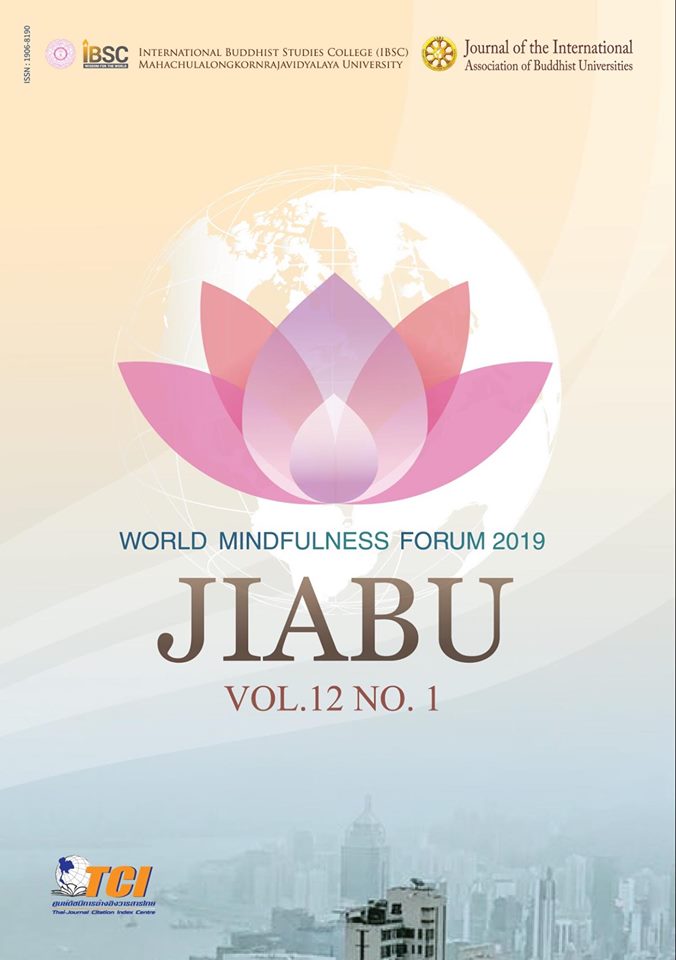An Analytical Study on Pure Land Concept in Mahāyāna Buddhism: A Case Study of Junto Society in Korea
Main Article Content
Abstract
This paper aims to review Jungto Society, a dynamic modern movement to see
if it follows the Buddha’s teachings. All materials were analyzed in a systematic and
academic way for a better understanding of Pure Land teaching and its application in Jungto
Society, Korea. The research shows that Pure Land teaching with its root in Mahāyāna
must always be understood from Mahāyāna trikaya teaching. Main Mahāyāna concepts of
Interconnectedness, Dependent Co-arising = ‘sunyata, Pure/ Original Mind, Non-duality
in practice and the Bodhisattva Path are also to be considered. Pure Land teaching is
dynamic and adapts its practice through changing times and needs. The study shows that
Jungto Society is a modern example of reinterpretation for Dependent Origination, Four
Noble Truths, Eight Noble Path, Tilakhana and Bodhisattva path in Mahāyāna.
The results of the study indicate how the concept of Pure Land and its later day
innovation are taught by Jungto Society. The Pure Land foundational sūtras, the background
of Jungto Society, its Buddhist activities, impact and contributions on Korean society were
examined.
Article Details
Views and opinions expressed in the articles published by The Journal of the International Association of Buddhist Universities (JIABU), are of responsibility by such authors but not the editors and do not necessarily reflect those of the editors.
References
Education Foundation. p. 236.
Pomnyum Sunim. (2015). Awakening. South Korea: Jungto Publishing. pp. 153-156.
. (2008). A Treatise for Young Buddhist Practitioners. South Korea: Jungto Publishing.
pp. 17-21.
. (2006). The Story of Amitayurdhyana Sutra. South Korea: Jungto Publishing. pp.
8-9.
. (2008) A Treatise for Young Buddhist Practitioners. South Korea: Jungto Publishing.
pp. 32-39.
Thien Tam, Thich (tran.). (1993). Pure –Land Zen Zen Pure – Land. Peang: The Penang
Buddhist Association. p. 254.

